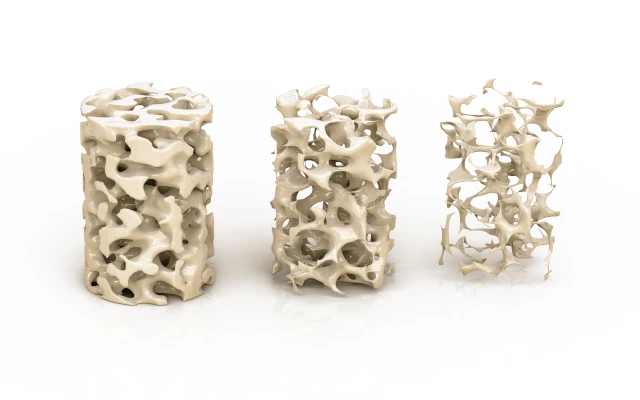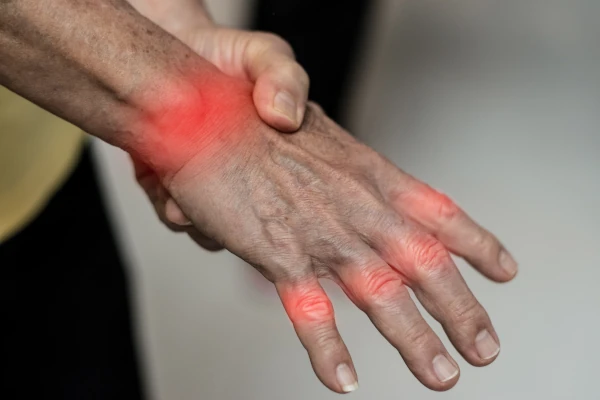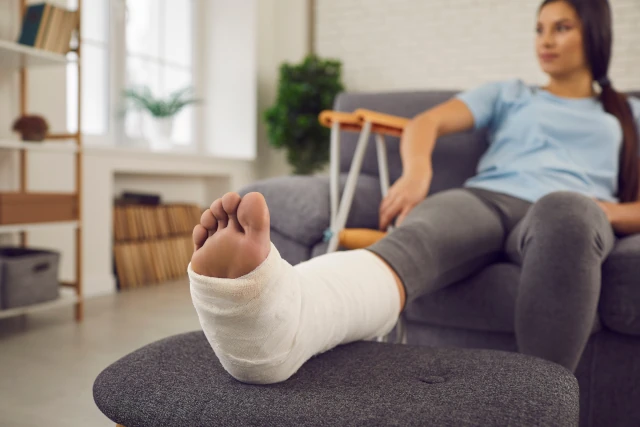
Ozempic and Osteoporosis: Understanding Risks, T-Scores, and Vibration Plate Therapy for Bone Health
- Dr. Sakshi Grover (MPT)
Connect with our expert physiotherapist for personalized physiotherapy advice.
Osteoporosis is a silent condition that weakens bones and increases fracture risk, especially in older adults. With the rising popularity of Ozempic (semaglutide) for managing type 2 diabetes and aiding weight loss, concerns have emerged about its impact on bone health. This blog explores the connection between Ozempic and osteoporosis, the role of T-scores in diagnosis, and how physiotherapy and tools like vibration plate therapy can aid in maintaining and improving bone density.
What Is Ozempic and Why Is It Prescribed?
Ozempic is a GLP-1 receptor agonist primarily used to manage blood sugar levels in people with type 2 diabetes. It also promotes weight loss by slowing gastric emptying and reducing appetite. While effective, rapid weight loss from Ozempic may pose risks to muscle and bone health, particularly in vulnerable populations.
Is Ozempic Linked to Bone Loss or Osteoporosis?
Some studies and clinical observations suggest a potential link between Ozempic-induced weight loss and reduced bone mineral density (BMD). Weight-bearing contributes to stronger bones, and a sudden reduction in weight could potentially lead to bone weakening, especially in postmenopausal women and the elderly.
Understanding T-Scores in Osteoporosis Diagnosis
A DEXA scan is the gold standard for measuring bone mineral density. The T-score is a comparison of your bone density to that of a healthy 30-year-old:
- Normal: T-score of -1.0 and above
- Osteopenia: T-score between -1.0 and -2.5
- Osteoporosis: T-score of -2.5 or lower
Each unit drop in T-score significantly increases the risk of fractures. Knowing your T-score can help tailor a personalized treatment and physiotherapy plan.
Is Osteoporosis Reversible?
While osteoporosis is not entirely reversible, its progression can be slowed or stabilized through lifestyle changes, medication, and targeted physical therapy. In some cases, bone density may modestly improve with the right interventions.
- Calcium and Vitamin D supplementation
- Weight-bearing and resistance exercises
- Hormonal therapy in postmenopausal women
- Avoiding smoking and alcohol
Physiotherapy in Osteoporosis Management
Physiotherapy plays a critical role in preventing fractures, improving posture, and enhancing quality of life in osteoporosis patients. A physiotherapist can design a customized program based on your bone health, T-score, and risk profile.
- Improves balance and coordination to reduce fall risk
- Strengthens postural and core muscles
- Enhances joint mobility
- Encourages safe and progressive resistance training
- Uses therapeutic modalities like vibration plates where appropriate
Vibration Plate Therapy: Does It Work?
Vibration plate therapy involves standing on a platform that sends gentle vibrations through the body. These vibrations can stimulate muscle contractions and may improve bone formation in people with low BMD.
Research is mixed but promising. Some studies show modest improvements in bone density, especially in the hips and spine, when vibration therapy is combined with exercise. It’s most effective when prescribed as part of a physiotherapy plan under professional supervision.
Safety and Recommendations:
- Not suitable for everyone (e.g., those with certain joint conditions or pacemakers)
- Should be supervised or recommended by a physiotherapist
- Combine with weight-bearing exercises for best results
Conclusion
As Ozempic use grows, it’s essential to monitor bone health, especially if you’re losing weight rapidly. Understanding your T-score, engaging in guided physiotherapy, and exploring safe therapies like vibration plates can help manage or slow osteoporosis. If you’re concerned about your bone health or experiencing postural changes, consult a physiotherapist for a comprehensive plan tailored to your needs.
Connect with our expert physiotherapist for personalized physiotherapy advice.



